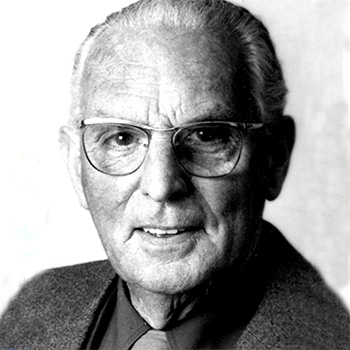Back to series


Unduly Protracted Infancy
(This is a two-part series on Growing in Christ Series Part 1, Part 2)
Click here to open a Print - Friendly PDF
"If I were called on to put my finger on the most pressing need of our age, I would unhesitatingly say—maturity.” These words of an old preacher of the past are no less relevant in the wonder-world of the space age. It almost seems that as technology and knowledge advance, maturity recedes.
The low level of spiritual life in the Corinthian church occasioned acute distress for Paul. Their underlying problem was neither heresy nor apostasy but worldliness and spiritual immaturity. For the length of time they had been in possession of the truth, they should have been mature Christians. But to his dismay Paul discovered that they were still plagued with carnality. As a church they had been endowed not only with spiritual blessings but also with every spiritual gift. “You do not lack any spiritual gift,” he told them (1 Cor. 1:7).
The Corinthian believers seemed to have a penchant for the spectacular and flamboyant, but they failed to evidence a maturity matching their gifts and claims. They majored in the exercise of the gifts of the Spirit, but they were sadly deficient in the fruit of the Spirit. Consequently the apostle had to tell them, “I could not address you as spiritual but as worldly— mere infants in Christ” (1 Cor. 3:1). In some way their spiritual growth had been arrested, and their legitimate spiritual infancy had become unduly protracted.
This problem is by no means confined to the early church; it is a major concern in many churches in our own day. There are too many adult-infants in our church rolls.
Should the pastor venture to launch into teaching some of the deeper truths of Scripture, a section of his congregation will complain that he is preaching over their heads. So he is on the horns of a dilemma. If he continues to feed them on little else than the milk of the Word, he leaves behind the more mature section of his congregation, while the others remain spiritual infants.
Paul stated the final objective of preaching in an exceedingly important verse that epitomizes the goal of the ministry of the Word: “We proclaim him, admonishing and teaching everyone with all wisdom, so that we may present everyone perfect [mature] in Christ. To this end I labor, struggling with all his energy, which so powerfully works within me” (Col. 1:28, italics mine). It will be the aim of the wise pastor to give teaching that will be relevant to people of all stages of spiritual development, and this is no easy task.
A Legitimate Spiritual Infancy
The new life enters the new Christian in embryo form, and it must grow and develop as does an infant. For this desirable development to take place, congenial conditions for spiritual growth must be provided, and this is the responsibility of the one who disciples the new Christian. The environment and nourishment should be provided in the fellowship of the local church.
 We often unintentionally discourage young Christians by entertaining unrealistic expectations. Every mother expects her baby to act and react like a baby. She does not look for adult behavior. Similarly we should be understanding and sympathetic with the early falls and struggles of a spiritual babe. In Hosea’s prophecy, God is represented as acting in that way: “It was I who taught Ephraim to walk, taking them by the arms” (Hos. 11:3).
We often unintentionally discourage young Christians by entertaining unrealistic expectations. Every mother expects her baby to act and react like a baby. She does not look for adult behavior. Similarly we should be understanding and sympathetic with the early falls and struggles of a spiritual babe. In Hosea’s prophecy, God is represented as acting in that way: “It was I who taught Ephraim to walk, taking them by the arms” (Hos. 11:3).
Within the right limits, babyhood is magic, but when it is unduly prolonged, it becomes tragic. It is wonderful to be a baby, but it is disastrous to remain one. It is to believers in this condition that Paul refers in the passages at the head of this chapter.
The Greek term used to describe this immature state is sarchikos, variously translated as “carnal,” “men of flesh,” and “worldly.” Each rendering throws light on the meaning of the word, but the combination of the three makes an unhappy picture of the person in this state.
In Israel’s memorable trek from the bondage of Egypt to the freedom of Canaan, we are given a divinely authorized illustration that is quite contemporary. Referring to this journey, Paul wrote, “Now these things occurred as examples, to keep us from setting our hearts on evil things as they did….These things happened to them as examples and were written down as warnings for us, on whom the fulfillment of the ages has come” (1 Cor. 10:6, 11, italics mine). So we have biblical warrant for drawing spiritual lessons from Israel’s history.
An Illegitimate Infancy
Once the Israelites had crossed the miraculously divided Red Sea, the journey into Canaan was only an eleven-day trek (Deut. 1:2). For wise reasons, however, God directed them to take a route that lengthened their travels by several months. This gave them time to adjust to their new and unaccustomed role as free people.
To reach Canaan, the Israelites had to cross the desert, and during the whole of this journey, they were walking in obedience to the will of God. This part oftheir trek was God-directed and therefore legitimate.
But once they reached Kadesh-Barnea, it was different. They rebelled against God and their leaders by despising and refusing to enter the Promised Land. This meant that the remainder of their desert wandering was contrary to the will of God and therefore illegitimate. The results were disastrous.
Israel’s experience is duplicated in the lives of worldly Christians who do not go on to maturity. In a word, Paul’s problem with the Corinthian church was worldliness. Their attitudes and reactions were worldly and not spiritual. They were fascinated by the more flamboyant spiritual gifts, while at the same time they tolerated grave abuses and open sin in their midst and allowed it to go unchecked. Envy, strife, party Unduly Protracted Infancy spirit, division, immorality, lawsuits between believers, and disorders at the Lord’s table were all evidences of their carnal condition. They were “men of flesh,” controlled not by the Spirit, but the self-life. Their spiritual immaturity was manifested in their reactions as well as their actions.
Our actions do not necessarily reveal our true motivation, for they can be insincere, superficial, even hypocritical. Our reactions to the unexpected, when we have had no time to prepare ourselves beforehand, are much more revealing and much more likely to be accurate. Spiritual immaturity is most clearly visible in our unrehearsed, unconscious reactions.
Diagnosis of Spiritual Immaturity
The condition of the Corinthian church illustrates some of the traits of people who have failed to go on to maturity.
Arrested Growth
The Corinthians had stopped growing and were static in their Christian experience—“mere infants in Christ,” spiritual dwarfs. The main cause of their stunted condition was their feeble digestion. They could assimilate only the milk of the Word of God. Milk and meat are both divine provisions, but they are appropriate to different stages of the Christian life. Milk is the food suited to the infant, but “strong meat is for the mature.”
Milk is predigested food that the babe receives secondhand from his or her mother, and the baby thrives on it. But the time comes when the child must be weaned and introduced to solids. The spiritually immature believer is one who has not been weaned from the “milk”—the elementary truths of the Word of God—but is still largely dependent for spiritual sustenance on the result of another’s heart exercise and study of the Scriptures. The immature believer has never learned the art of drawing spiritual nourishment directly from his or her own study of Scripture and prayer. The spiritual babe has a poor digestion for unadorned Bible study and craves condiments to spice it up.
 Unfortunately this craving is too often catered to, with the result that the spiritually immature person never progresses beyond a secondhand Christian experience. The spiritual infant is not able to stand on his or her own feet, but is unwilling to pay the price of serious Bible study in order to gain a firsthand knowledge of God and His Word.
Unfortunately this craving is too often catered to, with the result that the spiritually immature person never progresses beyond a secondhand Christian experience. The spiritual infant is not able to stand on his or her own feet, but is unwilling to pay the price of serious Bible study in order to gain a firsthand knowledge of God and His Word.
It is possible for even an immature Christian to make rapid growth once such a purpose is formed and the motivation is sufficiently strong. Princess Diana of Britain confessed that she had to grow up quickly to deal with the pressures demanded by her new role as wife to the heir of the British throne. “I have learned a lot in the last few months,” she said. “I have matured a lot recently and have got used to coping with things.”1 The motivation provided the rapid growth in maturity. A similar change has to take place in the life of one whose infancy has been unduly prolonged.
Emotional Instability
Instability is shared by both an infant and an immature Christian. Paul describes the infantile stage as, “tossed back and forth by the waves, and blown here and there by every wind of teaching…” (Eph. 4:14). The immature Christian never reaches settled personal convictions so strong that he or she is willing to suffer for them.
The spiritually immature person tends to live in the realm of fickle emotions, and these can be both capricious and tyrannical. Instead of being motivated by the spiritual principles enunciated in the Scriptures, the spiritual infant is moved by transient feelings. In facing a decision, the question is not, “Will this please God?” but “Does this please me?” The person’s actions are dictated more by how he or she feels about it than by what ought to be done. Like an infant, the spiritually immature person is a slave to feelings and thus lacks emotional stability. The spiritual infant should live more in the realm of the will, for we are what we choose, not what we feel.
Before Peter’s transforming experience on the Day of Pentecost, he was a classic example of this emotional instability. One moment he was walking on the water, the next he was sinking beneath the waves. First he made his glorious confession of Christ’s deity, then shortly afterward the Master had to rebuke him for his rash, Satan-inspired statement. Peter sincerely promised to lay down his life for his Lord, but a short time later he denied Christ three times.
After Pentecost, however, all this was changed. The marks of spiritual immaturity disappeared, and he became Peter the rock; he was no longer volatile but the stable, strong leader of the apostolic band.
Contentiousness
Most infants are very touchy, and their feelings are easily hurt. They have strong likes and dislikes and tend to be quarrelsome. These were qualities that came to the surface in the church at Corinth. “You are still worldly. For since there is jealousy and quarrelling among you, are you not worldly? Are you not acting like mere men?” (1 Cor. 3:3).
They had formed parties and cliques around their leaders instead of being united around Christ. “For when one says, ‘I follow Paul,’ and another, ‘I follow Apollos,’ are you not mere men?” (1 Cor. 3:4).
However competent the spiritually immature person may be in academic attainment or business acumen, it is usually this person who engages in contentious ecclesiastical politics and lobbying. The immature Christian will quarrel over minor matters or practice and procedure while important major spiritual issues are screaming for attention.
It is always Satan’s strategy to polarize and divide believers and churches, and it is usually the immature Christian he enlists as his agent. The immature person creates problems; the mature person solves them.
Worldly-mindedness
“Are you not worldly?” Paul asked. “Are you not acting like ordinary men?” In other words, there was nothing in their behavior to distinguish them from others or to identify them as Christ’s disciples. They appeared to be living on the same plane as those around them—conforming to the same standards, actuated by the same motives, dominated by the same desires. They were married to Christ yet flirting with the world. They were married to Christ yet not satisfied with Christ.
Insensitivity To Evil
Inability to discriminate between good and evil is another mark of immaturity. The mature Christian is one who “by constant use has trained himself to distinguish good from evil”—that is, by constant consultation with the Word of God and obedience to its precepts.
The watchword of the immature person about doubtful things is, “What’s the harm in it?” The mature Christian will ask rather, “What is the good in it?” The worldly person sees no harm in borderline things and usually acts according to desire rather than by principle. Because the thing the immature Christian desires to do is not specifically prohibited in Scripture, he or she is likely to engage in questionable practices. This lack of sensitivity to evil makes the spiritual infant an easy prey to the permissiveness that pervades society today.
Self-centeredness
An infant is self-centered and so is an immature believer. The current emphasis on loving oneself sounds rather strange when placed alongside our Lord’s emphasis on denying oneself. The emphasis on loving oneself tends to be just another manifestation of spiritual infantilism. The mature person is self forgetful and spends love on others. The prayer of the mature Christian is:
Higher than the highest heaven,
Deeper than the deepest sea,
Lord Thy love at last has conquered;
Grant me now my heart’s petition
None of self, and all of Thee.
Theodore Monod, “None of Self”
The story is told that when Mahmoud, with his all-victorious armies, laid siege to Guzurat in India, he forced his way into the costliest shrine of the Brahmins. They prostrated themselves before him, offering vast ransom if only he would spare their god, for, they claimed, the fortunes of their city depended on him.
After a pause, Mahmoud replied that he would rather be known as the breaker than the seller of idols, and he struck the image with his battleaxe. It proved to be hollow and had been used as the receptacle for thousands of precious gems that, as the image was shattered, showered down at the conqueror’s feet.
 Such an idol is self. For Mahmoud to have spared the idol would have meant the sacrifice of untold wealth. To spare self spells spiritual penury. If we deliver the idol self to utter destruction at the hand of Christ, there will be showered upon us spiritual enrichment beyond our power to conceive.
Such an idol is self. For Mahmoud to have spared the idol would have meant the sacrifice of untold wealth. To spare self spells spiritual penury. If we deliver the idol self to utter destruction at the hand of Christ, there will be showered upon us spiritual enrichment beyond our power to conceive.
But how can this tyrant—self—be ousted from the throne it has usurped? We are powerless to do it ourselves, for self cannot dethrone self. There is a more excellent way illustrated in the Old Testament story of a usurper, as recorded in 1 Kings 1:5-38.
How was Adonijah, the usurper of Solomon’s crown, dethroned? By the enthronement of Solomon—which automatically achieved the dethronement of Adonijah. So the enthronement of
Christ in the heart secures the dethronement of self, for two cannot occupy the throne at the same time.
“Let him deny himself,” was our Lord’s injunction to His hearers, by which He meant, “Let him remove self from the center of authority.” The verb is in the aorist tense, implying a crisis. It can take place in a moment of time. It will take place when, by an act of the will, we renounce the dominance of self, and with the Spirit’s aid, place Christ on the throne of the heart.
For example, self-centeredness and selfishness are among the most prolific causes of marital disharmony. An experienced marriage counselor maintained that at the center of most marital problems is immaturity in either husband or wife—or in both. Where either partner is immature, their love is preponderantly physical and self-centered because they have failed to grow up emotionally and spiritually. Demanding love is immature love. Mature love is sacrificial and undemanding.
Destructive Criticism
Destructive criticism is the mark of a carnal Christian. Its true character is seen in the fact that such criticism is always launched from a position of superiority. Very often the person who is overly ready to criticize others for their real or supposed faults and deficiencies is only seeking to compensate for his or her own very real faults. Such criticism is just the rebound of the person’s own wrong attitudes.
It remains to be said that spiritual immaturity can coexist with great spiritual gifts. It is the fruit of the Spirit, not the gifts of the Spirit, that is the true evidence of spiritual maturity.
Taken from In Pursuit of Maturity by J. Oswald Sanders; Grand Rapids: Lamplighter Books (Zondervan Publishing House) © 1986, pp. 27-36. Reprinted by permission.

J. Oswald Sanders
Author J. Oswald Sanders (1902 - 1992) attended the Bible Training Institute in Auckland and joined its staff in 1926. Sanders served as an instructor and administrator at the Bible College of New Zealand. He became general director of the China Inland Mission and led the reorganization of the CIM into the Overseas Missionary Fellowship. He was instrumental in beginning many new missions projects throughout East Asia. Upon his retirement Sanders wrote prolifically, with many of his over 40 books. One of Sander's most notable works was Heresies Ancient and Modern, later published as Cults and Isms (1962). COPYRIGHT: This publication is published by C.S. Lewis Institute; 8001 Braddock Road, Suite 301; Springfield, VA 22151. Portions of the publication may be reproduced for noncommercial, local church or ministry use without prior permission. Electronic copies of the PDF files may be duplicated and transmitted via e-mail for personal and church use. Articles may not be modified without prior written permission of the Institute. For questions, contact the Institute: 703.914.5602 or email us.
COPYRIGHT: This publication is published by C.S. Lewis Institute; 8001 Braddock Road, Suite 301; Springfield, VA 22151. Portions of the publication may be reproduced for noncommercial, local church or ministry use without prior permission. Electronic copies of the PDF files may be duplicated and transmitted via e-mail for personal and church use. Articles may not be modified without prior written permission of the Institute. For questions, contact the Institute: 703.914.5602 or email us.
-
Recent Podcasts
The Side B Stories – Dr. James Tour’s story
by Jana Harmon, James Tour on April 12, 2024From a secular Jewish home, scientific scholar and...Read More
-
Why are Christians so Bad?
by Paul Joen on April 5, 2024
-
Questions That Matter Podcast – Dai Hankey and Gospel Hope for Weary Souls
by Randy Newman, Dai Hankey on April 5, 2024
-
Recent Publications
Isn’t Morality Relative?
by Christopher L. Reese on April 1, 2024It is widely accepted in the Western world...Read More
-
Do Muslims and Christians Worship the Same God?
by Andy Bannister on March 1, 2024
-
Artificial Intelligence and Its Impacts on Humanity
by John Lennox on February 13, 2024
0
All Booked
0.00
All Booked
0.00
All Booked
20599
GLOBAL EVENT: 2024 Study Tour of C.S. Lewis’s Belfast & Oxford
https://www.cslewisinstitute.org/?event=global-event-2023-study-tour-of-c-s-lewis-belfast-oxford-2&event_date=2024-06-22®=1
https://www.paypal.com/cgi-bin/webscr
2024-06-22

Next coming event
Days
Hours
Minutes
Seconds
GLOBAL EVENT: 2024 Study Tour of C.S. Lewis’s Belfast & Oxford
On June 22, 2024 at 12:00 pmat Belfast, Northern Ireland & Oxford, EnglandCategories
Speakers

J. Oswald Sanders
Author
Team Members





